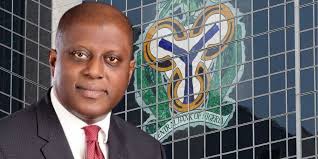Veteran Asia-Pacific investor and founder of the Research Alpha fund, Michael McGaughy, has praised the economic reforms introduced by the Central Bank of Nigeria and President Bola Tinubu’s administration, describing them as a game-changer for the country’s investment climate.
McGaughy’s comments came as the International Monetary Fund concluded its Article IV Consultation with Nigeria, commending the country for major reforms that have boosted macroeconomic stability and improved investor confidence.
McGaughy, whose Research Alpha fund has posted a return of 130 per cent since inception and has been invested in Nigerian equities since 2017, said Nigeria’s recent policy shifts signal a positive turnaround for Africa’s largest economy. He highlighted key reforms such as the unification of the foreign exchange market, removal of petrol subsidies, and deregulation of the power sector as fundamental to the ongoing transformation.
He pointed to President Bola Tinubu’s policy actions, which began shortly after he took office in 2023, as the catalyst for Nigeria’s new economic trajectory. These reforms, according to him, represent “a developmental economist’s dream” and address long-standing structural bottlenecks. McGaughy also noted that the operational launch of the Dangote Refinery has helped reduce pressure on foreign exchange by cutting the importation of refined petroleum products.
The investor aligned with recent commentary by Fitch Ratings, which credited the Central Bank of Nigeria’s leadership under Governor Olayemi Cardoso for restoring financial stability. McGaughy praised the CBN’s hawkish monetary stance, which saw the Monetary Policy Committee raise the interest rate by 875 basis points to 27.5 per cent in 2024, to curb inflation and stabilise the naira.
Other major CBN reforms include the replacement of the multiple exchange rate system with a “willing-buyer, willing-seller” framework, supported by a digital FX trading platform called B-Match. These efforts have narrowed the gap between official and parallel exchange rates from over 60 per cent to less than three per cent.
The IMF also confirmed significant gains from the FX reforms. The fund noted that Nigeria’s gross external reserves reached $40.9 billion at the end of 2024, giving the country over eight months of import cover. In Q1 2025 alone, FX inflows surged to $6.9 billion, supported by improved portfolio inflows and a strong current account surplus.
“The FX market is now more stable and predictable,” the IMF stated, adding that Nigeria’s return to the Eurobond market in January 2025 after a four-year break signals improved global investor confidence.
McGaughy also spoke about the positive performance of the Nigerian equity market, despite weak oil prices. He noted that companies are regaining pricing power, and earnings are beginning to reflect this recovery. “Most Nigerian stocks still trade at significant discounts to their all-time USD highs, and valuations remain compelling,” he said.
His fund’s top non-bank financial stock, for example, is trading at around three times earnings and offers a five per cent dividend yield — a signal of what he called “generational value.”
While acknowledging that Nigerian investments were previously a drag on his fund’s returns, McGaughy said the tide has turned, with many portfolio companies doubling in value over the past 6 to 12 months. He stressed that long-term commitment and patience are key to investing in emerging markets like Nigeria.
“In Nigeria, we hold for the long term, reinvest dividends, and let compounding do the work,” he explained, noting that despite past challenges, the reforms are now yielding real gains.
The IMF also echoed similar sentiments in its latest country report, describing Nigeria’s path to recovery as promising but still requiring fiscal discipline and reform continuity. It stressed the need for maintaining inflation controls and expanding efforts to widen the tax base.
In response, the CBN Governor Olayemi Cardoso issued a statement on Wednesday saying, “This assessment reaffirms that responsible, forward-looking policy choices matter. It affirms that Nigeria is regaining credibility, anchoring expectations, and laying the foundation for inclusive, long-term growth.”
He added that the government’s reform agenda remains focused on creating an economy that delivers broad-based prosperity and welcomes investors looking for long-term value.
